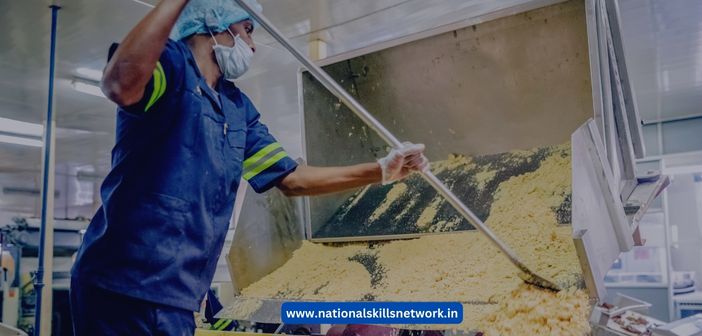India’s food processing industry stands at the cusp of a transformative era, with projections indicating the creation of 9 million jobs by 2024. By 2030, India is poised to become the world’s fifth-largest consumer of food and food technology, quadrupling household consumption. This robust growth not only highlights the sector’s economic significance but also underscores the need for skilled professionals to meet the evolving demands of the industry.
Diverse Job Opportunities
The food processing industry in India provides a spectrum of job opportunities catering to individuals with varying skill levels. Entry-level positions such as Technician, Operator, and Packer offer a crucial starting point for newcomers equipped with basic laboratory skills and knowledge of quality control. These roles form the backbone of the industry, ensuring smooth and efficient production processes.
Moving up the hierarchy, middle-level roles like Production Specialist and Entrepreneur (e.g., Craft Baker, Chocolate Maker) require specialized expertise at National Skills Qualification Framework (NSQF) levels 4 and 5. These professionals contribute to innovation and product development, pivotal in shaping the industry’s landscape.
Advanced positions, including Food Technologists and Production Managers, exist at NSQF levels 5, 6, and 7. These individuals are responsible for overseeing complex production processes, ensuring quality standards, and driving technological advancements within the sector.
The food processing industry also fosters rural entrepreneurship, empowering individuals to establish small-scale agro-processing units. This contributes to economic development and facilitates agricultural value addition, connecting local produce to broader markets.

Government Initiatives
The Indian government has implemented several schemes to bolster the food processing sector, recognizing its potential for job creation and economic growth. The Pradhan Mantri Kisan SAMPADA Yojana (PMKSY) and the Pradhan Mantri Formalization of Micro Food Processing Enterprises (PMFME) scheme aim to provide support and incentives for the development of micro food processing units.
The Production Linked Incentive (PLI) Scheme, with an outlay of ₹10,900 crore from 2021-2022 to 2026-2027, further incentivizes the industry to enhance productivity and technological capabilities. The “National Food Processing Policy” has been formulated to ensure a remunerative return to farmers, aligning with the government’s commitment to agricultural welfare.
Training Programs in the Food Processing Industry
A variety of training programs contribute to the skill development necessary for a thriving career in the food processing industry:
- Government-led initiatives: Programs like Pradhan Mantri Kaushal Vikas Yojana (PMKVY) and Jan Shikshan Sansthan focus on specific populations, supporting skill development for farmers, entrepreneurs, and women.
- Vocational training: Industrial Training Institutes (ITIs) and polytechnics offer hands-on training in technology, preservation, and quality assurance for food processing, providing practical skills that align with industry needs.
- Certification programs: Organizations like the Food Industry Capacity and Skill Initiative (FICSI) provide specialized certifications in food safety standards, quality management systems, and processing techniques.
- And more…
To learn more about the training programmes and gain in-depth insights into various aspects of India’s Food Processing industry, please read our conversation with Dr. Preeti Dixit- https://nationalskillsnetwork.in/food-processing-industry-scope-for-skill-development-training-and-jobs/
The food processing industry in India presents a wealth of opportunities for career growth, innovation, and entrepreneurship. With the right skills and training, individuals can contribute to the sector’s dynamic evolution, ensuring its continued success in the global food market. As India embraces its role as a major consumer of food and food technology, those equipped with the necessary expertise will play a crucial role in shaping the industry’s future.












